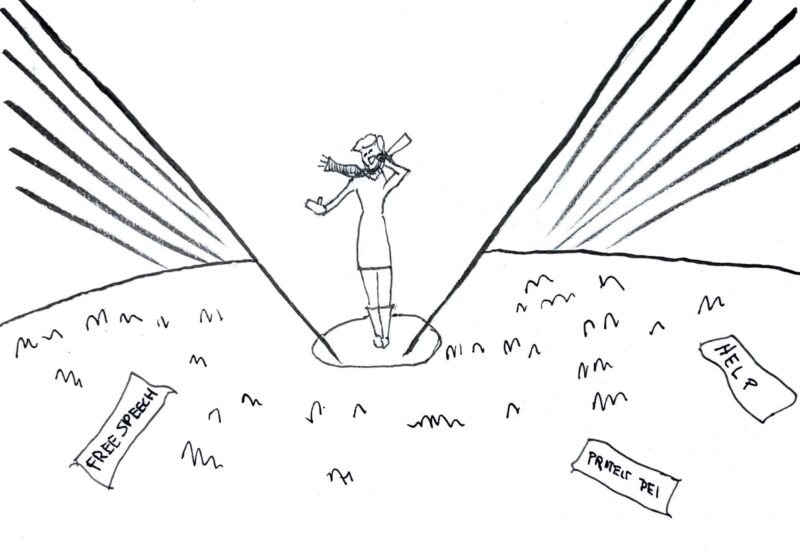Senior national correspondent for Reuters news agency Alan Elsner discussed the problems with America’s prison system, the subject of his most recent book, “Gates of Injustice,” in Gleason Hall on Feb. 15.
“As my book shows, there’s a lot wrong with [the prison system],” Elsner said. “The system itself is dysfunctional. It’s a system in which thousands of men are raped each year and in which racist and neo-Nazi gangs run drugs, gambling and prostitution rings from inside their prison cells, while the authorities sometimes choose to turn a blind eye. It’s a system in which thousands of inmates are subjected to virtual sensory deprivation and social isolation for years on end and often driven crazy if they were not already seriously ill before they got there.”
Elsner addressed a group of about 35 students, administrators, local officials and members of the public during his speech, which was sponsored by the Office of the Dean of the College.
“I plan on buying his book,” freshman Dave Brais said. “I believe this subject has a huge impact on our society as a whole. Looking for more effective solutions for how criminals are corrected will be a major question of this century.”
Elsner spoke on the failure of the prison system to rehabilitate criminals. “At the moment, two out of every three prisoners are back behind bars within three years,” Elsner said.
Elsner visited correctional institutions across the country while researching his book.
“To reform our system, we have to start by dismantling the foolish and racist policies that have victimized so many people convicted of victimless crimes, and by that I mean possession,” Elsner said. “I’m not talking about manufacture or trafficking, I’m talking about possession. My book contains about 30 concrete suggestions of big and small reforms.”
In attendance was Monroe County District Attorney Michael Green.
“A lot of the things he looked at as factors that would play into a solution down the line are things we’re doing right here in Monroe County,” Green said. “You go into the [Monroe County] correctional facility and they’ve got over 200 inmates in chemical dependency programs in the Correctional Facility. So, we’re not just warehousing people in our local jail. Listening to some of the stories he told about other parts of the country made me feel good about some of the things we’re doing here.”
Green added that while there are shortcomings, the issue of a growing prison population can not be blamed on the justice system alone.
“We don’t have crime because of anything the police or the prisons do – we have crime because of other factors,” Green said. “In effect we’re putting a Band-aid on things – we’re keeping rates down. But ultimately there are these underlying social issues – whether it’s the breakdown of the family structure, the high child poverty rates or low education rates. They lead to an environment, which certainly contributes to a great extent to the problems we’re having.”
Also in attendance was Monroe County Jail Superintendent Robert Maldonado.
Maldonado believes that the prison system is as effective as possible, considering its resources.
“We have a chemical dependency program with a director who is responsible for monitoring and engaging inmates at the Monroe County Correctional Facility. We have educators and mental health professionals,” he said. “There was very little discussion about that sort of thing.”
Maldonado emphasized that while effective programs are in place in systems like Monroe County, they are often limited by a lack of resources.
“It’s difficult, at times, to rehabilitate if you don’t have resources,” Maldonado said. “I have a number of people that are employed as security personnel at the Monroe County Jail and Correctional Facility, but I have a limited amount of people that are employed as drug counselors, alcohol counselors and educators. There’s just less money spent on them.”
Bruml can be reached at abruml@campustimes.org.




